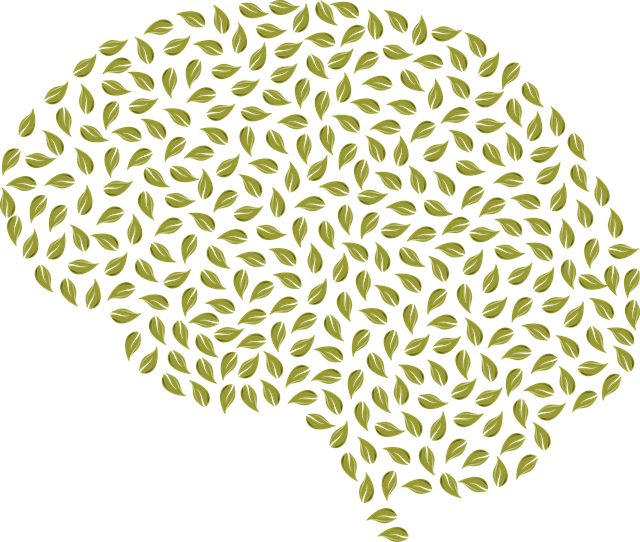Broomfield Biofeedback Therapy is a revolutionary approach to self-care, emphasizing mental health education and stress management techniques to enhance well-being. By leveraging the mind-body connection, this therapy enables individuals to control their mental and physical health, targeting stressors and improving resilience. Integrating practices like mindfulness, exercise, and sleep hygiene, tailored to individual needs, fosters a balanced lifestyle. Tracking progress through measurable goals and regular assessments is crucial for adjusting routines, while empathy-building strategies ensure culturally sensitive self-care tailored to personal needs.
“Elevate your well-being journey with this comprehensive guide to self-care practices. In today’s fast-paced world, prioritizing self-care is essential for overall health. We explore various facets, starting with ‘Understanding Self-Care: The Foundation of Well-being’, where we delve into the significance of self-nurturing.
A key highlight includes an in-depth look at Broomfield Biofeedback Therapy, a powerful tool harnessing mind-body connection. By identifying personal stressors and incorporating tailored routines, you’ll learn to navigate challenges effectively. This article equips you with strategies for measuring progress, ensuring long-term well-being.”
- Understanding Self-Care: The Foundation of Well-being
- Broomfield Biofeedback Therapy: Unlocking the Power of Mind-Body Connection
- Identifying Personal Stressors and Triggers
- Incorporating Effective Self-Care Routines into Daily Life
- Measuring Progress and Sustaining Long-term Well-being
Understanding Self-Care: The Foundation of Well-being

Self-care is a fundamental aspect of maintaining and enhancing overall well-being. It involves intentional actions taken to preserve one’s mental, physical, and emotional health, often in response to the demands and stressors of daily life. This proactive approach to wellness is crucial, especially for individuals in high-pressure professions like healthcare, where burnout prevention strategies are increasingly necessary. By prioritizing self-care, professionals can enhance their resilience and sustain their passion for their work over time.
In Broomfield Biofeedback Therapy, the focus on mental health education programs design highlights the importance of teaching individuals various stress management techniques. These strategies empower people to navigate life’s challenges more effectively, ensuring they don’t burn out due to unchecked stress. From mindfulness practices to regular exercise and adequate sleep hygiene, these self-care practices form a solid foundation for maintaining optimal well-being and can be tailored to meet individual needs.
Broomfield Biofeedback Therapy: Unlocking the Power of Mind-Body Connection

Broomfield Biofeedback Therapy offers a transformative approach to self-care by harnessing the mind-body connection. This innovative technique empowers individuals to take charge of their mental and physical well-being, addressing root causes of stress, anxiety, and even depression. By teaching participants how to regulate physiological responses, biofeedback becomes a powerful tool in the pursuit of improved mental health.
In today’s fast-paced world, where mental health policy analysis and advocacy continues to gain momentum, Broomfield Biofeedback Therapy provides a practical solution for self-management. Integrating this practice into mental health education programs design can significantly contribute to depression prevention efforts. By equipping individuals with the skills to manage their stress levels and emotional responses, biofeedback fosters resilience and promotes overall well-being.
Identifying Personal Stressors and Triggers

Recognizing personal stressors and triggers is a pivotal step in enhancing self-care practices. Broomfield Biofeedback Therapy offers a unique approach to achieving this awareness. By learning to identify the physical and mental cues that signal stress, individuals can begin to understand their specific triggers. This process involves paying attention to one’s body and emotions, recognizing patterns, and understanding the root causes of distress.
Through techniques like those employed in the Mental Wellness Podcast Series Production, one can develop inner strength by confronting these stressors head-on. By fostering mental wellness, individuals gain the resilience to navigate challenging situations with poise. This proactive approach empowers people to make informed choices, ensuring they prioritize their well-being and create a more balanced lifestyle.
Incorporating Effective Self-Care Routines into Daily Life

Incorporating effective self-care routines into daily life is a transformative step towards enhancing overall well-being. It involves recognizing that mental health and physical health are intricately linked, and nurturing both is essential for a balanced lifestyle. Broomfield Biofeedback Therapy offers valuable tools to individuals seeking to manage stress and improve their quality of life. By integrating simple yet powerful techniques into daily rituals, one can create a sense of calm and resilience. For instance, starting the day with mindfulness exercises or engaging in regular physical activity, such as yoga or walking, can set a positive tone for the rest of the day.
Self-care routine development is not just about personal preference; it’s a process tailored to individual needs. Empathy-building strategies and cultural competency training, often provided by healthcare providers, play a crucial role in guiding people towards sustainable self-care practices. These practices extend beyond surface-level relaxation; they empower individuals to develop a deep sense of connection with themselves, fostering better mental health and overall happiness.
Measuring Progress and Sustaining Long-term Well-being

Tracking your progress is a vital component of any self-care journey. By setting measurable goals and regularly assessing your well-being, you can gain valuable insights into what practices are most effective for you. This process allows you to make informed adjustments and tailor your self-care routine accordingly. For instance, incorporating Broomfield Biofeedback Therapy into your regimen could involve monitoring stress levels before and after sessions, gauging improvements in emotional regulation, and noting changes in overall mental clarity.
Sustaining long-term well-being requires a shift towards compassionate communication strategies and cultivating emotional intelligence. Regular reflection on your progress enables you to identify patterns, recognize triggers, and develop healthier coping mechanisms. As you advance, focus on integrating these practices into your daily life—from engaging in open and honest conversations with yourself and others (Communication Strategies) to practicing mindfulness exercises that enhance Emotional Intelligence. This holistic approach ensures that your self-care efforts become sustainable habits, contributing to a more fulfilling and balanced life.
Self-care is a transformative journey, and with the right tools, like Broomfield Biofeedback Therapy, it becomes an accessible and empowering process. By understanding our unique needs, identifying stressors, and incorporating consistent routines, we can achieve lasting well-being. This article has provided a roadmap to navigate this path, emphasizing the importance of self-reflection and practical strategies for a healthier, happier life.














